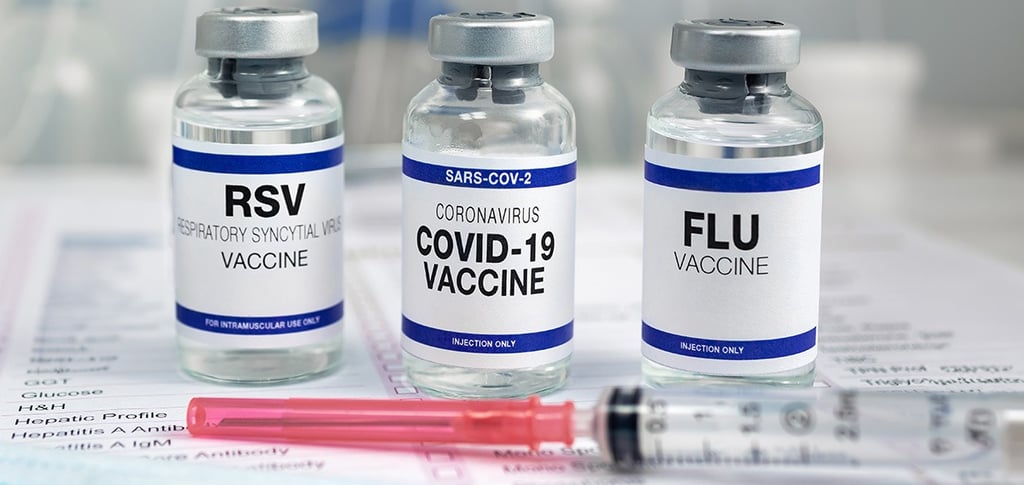Vaccines and the "Immune Overload" Myth: Unraveling the Science Behind the Controversy
Can too many vaccines weaken the immune system? We break down the science and debunk the myth with clear, evidence-based answers.
Dr. Islam Sharqeyeh
6/4/2025


Have you ever heard someone claim that "too many vaccines can overwhelm the immune system"? Perhaps you’ve stumbled across this idea in a family discussion or seen it floating around on social media. Known as the "immune overload" theory, this notion sparks concern, especially among parents wondering about the safety of childhood vaccination schedules. But is there any truth to it, or is it just a myth? In this article, we’ll dive into the science with a fresh perspective, debunking misconceptions with evidence that’s both fascinating and trustworthy. Buckle up for a journey into the world of immunology!
The Immune System: A Superhero with Limitless Power
Picture your immune system as a superhero armed with an arsenal of cells and antibodies, ready to fend off any biological invader. Every day, it battles millions of "intruders" from bacteria and viruses in the air, food, or even on your hands. So, can a handful of vaccines really tire out this mighty defender?
The science says: No way! A 2018 study from the American Academy of Pediatrics revealed that even an infant’s immune system can handle thousands of antigens (the substances that trigger immune responses) at once. Modern vaccines contain fewer than 200 antigens across an entire childhood vaccination schedule—a tiny fraction compared to the millions your body encounters daily. In other words, vaccines are like a light workout for your immune system: they strengthen it without breaking a sweat!
Vaccines and Autoimmune Diseases: Is There a Link?
One of the most persistent claims about "immune overload" is that multiple vaccines might trigger autoimmune diseases, like type 1 diabetes or rheumatoid arthritis. Let’s look at the evidence. A massive study published in the Journal of the American Medical Association (JAMA) in 2015, involving over 95,000 children, found no link between the number of vaccines received and an increased risk of autoimmune conditions. Similarly, a 2013 report from the Institute of Medicine (IOM) confirmed that current vaccination schedules are safe and do not cause immune-related harm.
Let’s put this in perspective: if vaccines were causing widespread autoimmune issues, we’d see a clear spike in these diseases as vaccination programs expanded over decades. Instead, vaccines have eradicated diseases like smallpox and nearly eliminated polio, all without evidence of weakening our immune systems.
Vaccines: Your Immune System’s Personal Trainer
Far from overwhelming the immune system, vaccines act like a personal trainer, teaching your body how to fight specific diseases with precision. Take the measles vaccine, for example. It trains your immune system to produce antibodies without exposing you to the actual illness. This "training" prepares your body to tackle the real infection if it ever shows up.
Recent studies, like those on COVID-19 vaccines (Pfizer and Moderna, 2021–2023), show that vaccines boost targeted immune responses without compromising overall immunity. In fact, vaccines like those for measles and polio have saved millions of lives annually by reducing disease prevalence, proving their immense value.
Why Does This Myth Persist?
If the science is so clear, why does the "immune overload" theory keep resurfacing? The answer lies in a mix of misunderstanding and misinformation. Social media can amplify fears about rare vaccine side effects, sowing doubt among the public. But let’s be clear: serious side effects from vaccines are extremely rare, and their benefits far outweigh the risks.
In the Arab world, myths sometimes circulate, like claims that practices such as cupping therapy might interfere with COVID-19 vaccine efficacy. However, the Saudi Ministry of Health has clarified that no studies support these claims. Factors like poor sleep or nutrition, as noted in a 2023 CNN report, may affect vaccine response more than the number of vaccines received.
A Global Success Story
Let’s take a moment to celebrate vaccines’ triumphs. Thanks to vaccination campaigns, smallpox is history, and polio is nearly extinct. In the Arab region, initiatives like polio vaccination drives in Gaza have saved countless lives. These stories remind us that vaccines aren’t just shots—they’re shields protecting entire communities.
The Bottom Line: Trust the Science
The "immune overload" theory is a myth unsupported by science. Your immune system is far too robust to be overwhelmed by vaccines, which contain a tiny fraction of the antigens it handles daily. Studies from JAMA, the World Health Organization, and others confirm that vaccines are safe, effective, and strengthen immunity without causing harm. If you’re worried about vaccines, that’s understandable—but the evidence is overwhelming: vaccines are one of medicine’s greatest achievements.
